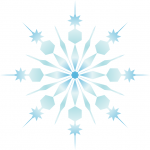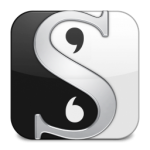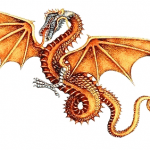Local conventions tend to be, well, small. They may not seem worth the time or even the relatively small amount of cash, but as Clancy pointed out with her post on LTUE, there are a number of good reasons to go.
First, local networking: This is your chance to get to know local authors. Clancy listed a number of writers she’s met at LTUE, most of whom I recognize as Utah natives. I live in Arizona, but I traveled up to Utah to attend a small local convention called Conduit. There, I made it on the list of people to play Magic with Brandon Sanderson. He took pity on me, and the many years since I’d played the game, and helped me out. As I got my butt kicked playing the game mano-a-mano against Brandon, I asked him writing advice that changed my life. I told him where I was with my writing and asked him where I should go next. He pointed me toward David Farland and his workshops, which we’ll talk about in a later post. My point is that I could have never had that opportunity at a large convention. In a small one, the authors aren’t so busy, and they’re more able to be themselves and talk with people on a personal basis. I had a similar experience with James A. Owen at CopperCon last August, having another life-changing conversation that had nothing to do with writing. But wait, everything has to do with writing, because writing is life portrayed through story.
In a local con, you also meet local fans. If you’re a novice, self-published writer, or just getting started in the NY publishing industry, or even if you’re well-known across the world, at a local con you have local fans who take an interest in their home-grown stars. I once had a well-published writer tell me that the local cons are imperative, because the fans there are your home-base, they’re your friends that will give you support when the going gets rough. It’s true, and I’ve met some wonderful people and wonderful friends through local conventions.
Second, Guests: Almost every convention on the planet, no matter how small, brings in an outside talent. As with local authors, the guests are usually more accessible at a local con than at a world-renowned convention. At LepreCon 2011, Elizabeth Bear was their Guest of Honor. I never saw Elizabeth long enough to start up a conversation, but to my surprise, her editor, Beth Meacham of Tor, had come. I sat at a cafe table with Ms. Meacham for a few minutes, and though she had to know I sat with her for the sole purpose of meeting her, she was gracious and kind. We talked about the future of publishing and she explained the options for YA science fiction from an editor’s point of view. When the party she waited for arrived, I thanked her for her time, and made a quick exit. I didn’t pitch, and she didn’t ask about my work, which means I didn’t make a nuisance of myself. If I ever have the privilege of speaking with her again, probably by means of an agent, then I hope she’ll remember me favorably because I didn’t play the part of an annoying wannabe who pinned her down for twenty minutes to talk about my novel.
Third, the money: Local conventions are so much cheaper than the big ones. Conduit is $35 as is LepreCon, compared to the $180 and up that most of the big conventions cost. Also, if you live local, you can choose to drive to the convention and back instead of staying at the hotel, and though their hospitality suites aren’t usually quite as nice as the big conventions, they still have decent enough ones to grab a snack here and there and cut on your food costs.
Fourth, community service: When you go to a local convention, and encourage your friends to attend, you’re supporting your genre within your community. Local fans have a place to go that they can afford, and your genre has a venue from which to publicize. It’s a win-win for everyone.
Here are some upcoming conventions in AZ : Tuscon Festival of Books (related post), March 9-10, Free; LepreCon, May 9-12, $35; Phoenix Comicon (fairly crowded), May 23-26, $40; Coppercon, August 9-11; TusCon, November 9-11, $35
Some outside of AZ that I’ve heard about: CarolinaCon in North Carolina, March 15-17, $20; Conduit in Utah, May 24-26, $35; FenCon in Dallas/Fort Worth, TX, October 4-6, $30
For a more comprehensive list of science fiction conventions, go to www.westernsfa.org
(All prices represent the current cost. Some registration costs go up at later dates.)
These are the ones I know about. I’d love to hear about others, especially for other genres.




